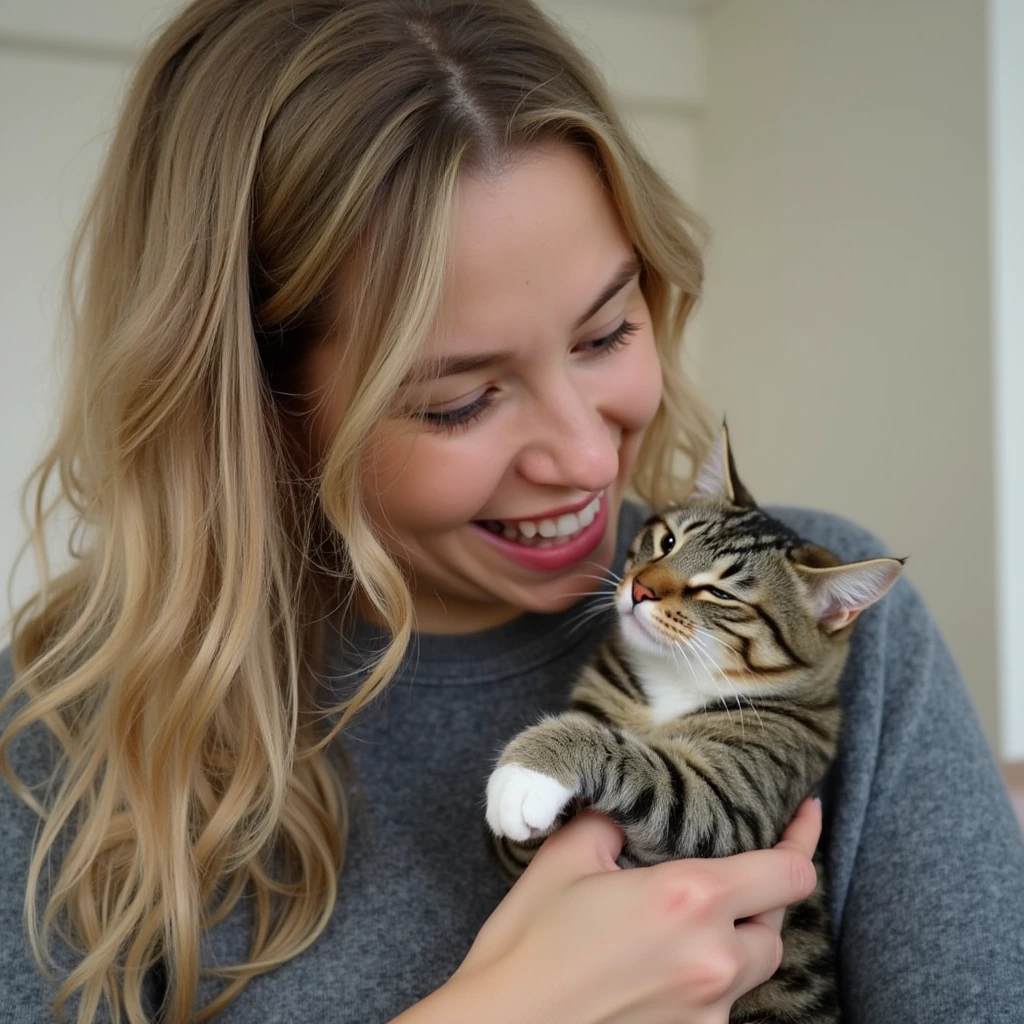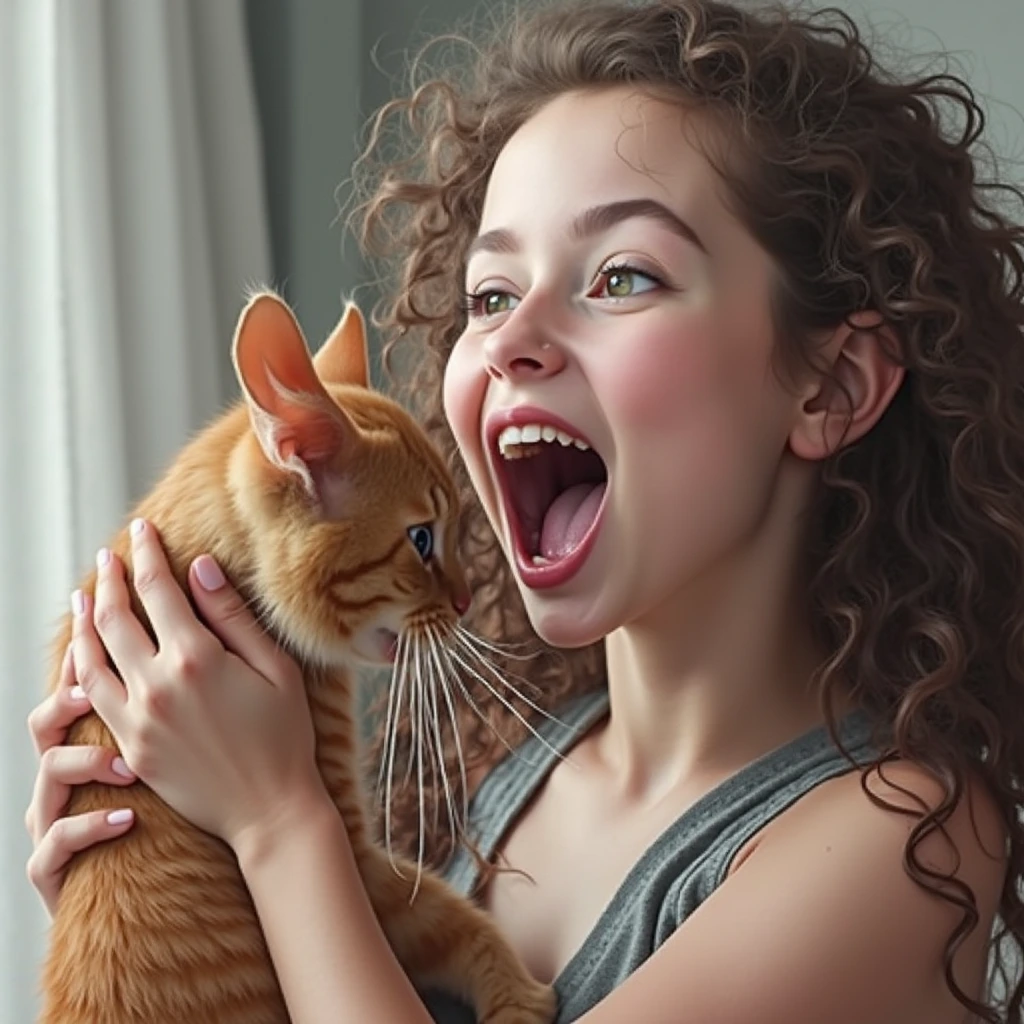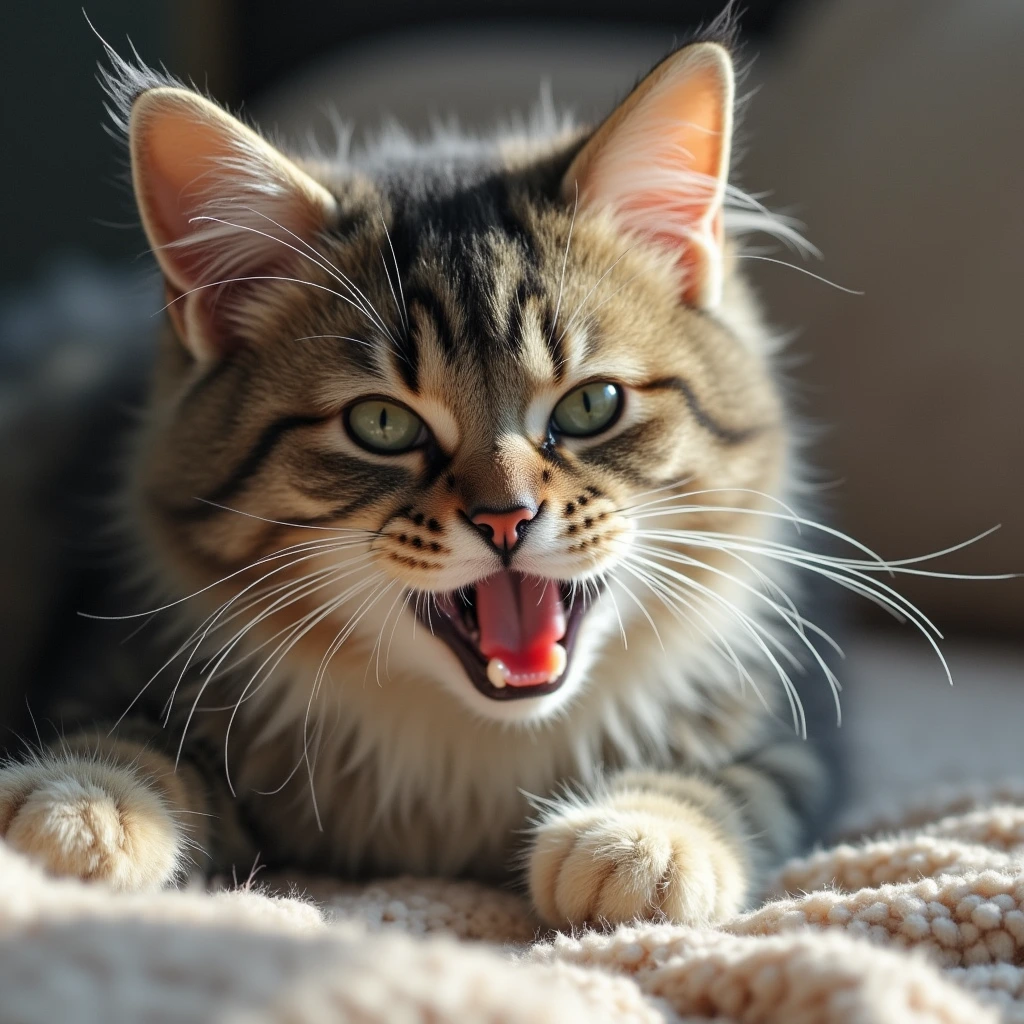As a cat lover, you’ve probably noticed that your feline friend has some quirky habits. Maybe they bat at your earrings, chase imaginary creatures in the living room, or even nuzzle your nose. But there’s one behavior that can leave many cat owners puzzled: when your cat starts chewing or nibbling on your hair. You might find it endearing or confusing, but you’re likely left asking, “Why does my cat eat my hair?” Let’s explore the possible reasons behind this curious habit, how to understand it, and ways to gently redirect it if necessary.
Table of Contents
The Grooming Instinct – Is Your Cat Trying to “Groom” You?- Why Does My Cat Eat My Hair?

Understanding Social Grooming in Cats
Cats are naturally clean creatures, dedicating a significant portion of their day to grooming themselves. This habit doesn’t just keep their coats clean; it also strengthens bonds between cats in the wild and even in domestic settings. When cats groom each other, they’re not only cleaning but also sharing scent, reinforcing social ties, and showing affection.
When your cat chews on your hair, they might be trying to “groom” you as part of their family. This is a behavior often observed between mother cats and their kittens or among closely bonded feline companions. By nibbling on your hair, your cat may see you as part of its family, displaying its affection in a way that’s instinctive to them.
- Key Takeaway: Grooming you shows your cat’s affection and sense of closeness. They see you as part of their inner circle, and chewing on your hair might be their way of showing that.
Seeking Attention – Why Your Cat Chooses Your Hair to Get Noticed-Why Does My Cat Eat My Hair?
Attention-Seeking Behaviors in Cats
Cats can be masters at getting your attention, especially when they feel ignored or crave a bit of extra playtime. If your cat notices that chewing your hair elicits a reaction—whether it’s a gentle scolding or a laugh—they may continue to do it as a way to engage with you. Cats often find inventive ways to get their owners to look their way, and nibbling on your hair can become one of those quirky attention-grabbing moves.
This behavior is common among cats who are particularly social or high-energy. For instance, if your cat doesn’t have enough interactive toys or time with you, it might start chewing your hair as a means of interaction.
- Key Takeaway: Hair-chewing might simply be your cat’s way of saying, “Hey, look at me!” Paying attention to them in structured play sessions can help reduce this behavior.
Stress or Anxiety – How Emotional States Can Influence Hair-Chewing-Why Does My Cat Eat My Hair?
Self-Soothing Behavior in Cats
Just like people, cats can experience stress and anxiety. This may come as a surprise, but these feelings can be triggered by changes in routine, a new family member, or even rearranged furniture. When cats are anxious, they sometimes engage in self-soothing behaviors, such as over-grooming, licking, or chewing on objects—or in this case, your hair.
Hair-chewing can offer comfort to a stressed cat. It’s similar to how some humans might bite their nails or fidget when nervous. If you notice your cat seems anxious or is engaging in other stress-related behaviors like over-grooming, there could be an underlying cause that needs attention.
- Key Takeaway: Hair-chewing might be your cat’s way of relieving anxiety. If this is a frequent habit, consider any recent changes in their environment or routine.
Curiosity and Exploration – Is Your Hair Just an Intriguing Texture to Your Cat? – Why Does My Cat Eat My Hair?

Cats and Their Love for Unusual Textures
Cats are famously curious, and they love to explore the world with their paws and mouths. Your hair could be an intriguing texture to them—soft, long, and maybe even slightly scented from your shampoo. They may simply see your hair as a new item to investigate, much like they might paw at a new blanket or sniff around a shopping bag. This is especially likely if you have longer hair or use hair products with interesting scents that your cat finds intriguing.
- Key Takeaway: For many cats, hair is a texture to explore, satisfying their natural curiosity and investigative instincts.
Possible Risks – When Eating Hair Could Be Harmful to Your Cat-Why Does My Cat Eat My Hair?
Potential Health Risks of Hair Ingestion
While hair-chewing might be harmless most of the time, it’s worth noting that it could lead to certain risks, particularly if your cat begins ingesting the hair. Swallowed hair can contribute to hairballs or even lead to digestive issues over time. Additionally, hair products like shampoos, conditioners, or styling products can contain ingredients that aren’t safe for cats.
If your cat swallows hair frequently, it’s essential to monitor their behavior for signs of digestive discomfort, like vomiting or constipation. In more severe cases, ingesting hair could cause a blockage in their digestive system, which would require veterinary attention.
- Key Takeaway: While an occasional nibble might be harmless, regular hair ingestion poses health risks, from hairballs to potential digestive blockages.
How to Discourage Your Cat from Eating Your Hair Gently/Why Does My Cat Eat My Hair?
Redirection Techniques
If you’re looking to curb your cat’s hair-chewing habit, gentle redirection can be effective. Try offering alternatives that mimic the texture and feel of your hair, such as soft cat toys, chew toys, or textured cat-safe items. Providing these items can satisfy your cat’s desire to chew without involving your hair.
When your cat starts going for your hair, gently redirect them to one of these toys. Reward them with treats or affection when they choose the toy over your hair, reinforcing positive behavior.
Increase Engagement Through Playtime
A bored or under-stimulated cat might chew on your hair simply because they have excess energy to burn. Setting aside regular play sessions with interactive toys can keep them physically and mentally engaged, reducing their need to chew on your hair for entertainment. Laser pointers, feather toys, and tunnels are all excellent options that provide both stimulation and bonding time.
- Suggested Activities: Laser pointers, feather toys, catnip toys, and interactive tunnels.
Frequently Asked Questions (FAQ) / Why Does My Cat Eat My Hair?
Why does my cat eat my hair while I’m sleeping?
Your cat may chew on your hair at night because they feel safe and bonded with you. It’s a way of showing affection and comfort when everything is calm.
Is it normal for cats to eat their owner’s hair?
Yes, this behavior is relatively common and often linked to grooming instincts or attention-seeking. While it’s normal, it’s a good idea to gently discourage excessive hair-chewing to prevent any health risks.
How can I safely prevent my cat from eating my hair?
You can try providing alternative toys that satisfy their need to chew, and use positive reinforcement to encourage this behavior. Consistent engagement with playtime and interactive toys can also help.
Are there health risks if my cat chews on my hair?
Ingesting small amounts of hair is typically not dangerous, but frequent hair-chewing can lead to digestive issues, hairballs, or reactions to hair products. Consult your vet if you notice any symptoms.
Embracing Your Cat’s Unique Personality / Why Does My Cat Eat My Hair?

Cats have distinct personalities and unique ways of expressing affection. While hair-chewing might seem like a strange habit, it’s often a sign of closeness, comfort, or curiosity. Understanding the reasons behind your cat’s behavior can help you appreciate these quirks while gently guiding them toward healthier alternatives. By doing so, you’re not only strengthening your bond but also ensuring a safe and happy environment for your furry friend.
Call-to-Action
If you’ve noticed unusual or new behaviors in your cat, reach out to your veterinarian for guidance. For more tips on cat care, training, and understanding feline behavior, explore our other articles or sign up for our newsletter.

